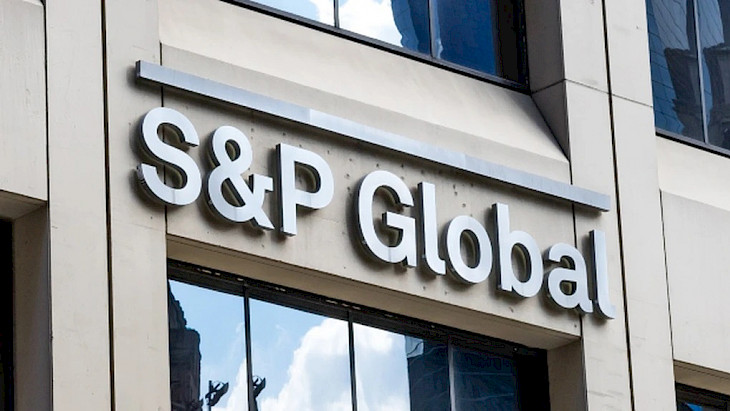International ratings agency S&P Global Ratings has affirmed Uzbekistan’s long-term and short-term sovereign credit ratings at ‘BB-/B’, while upgrading the country’s outlook from “Stable” to “Positive.” This marks the first improvement in Uzbekistan’s rating outlook since the country received its initial rating, Gazeta.uz reports.
In its review, S&P noted that the 63% surge in global gold prices (from early 2024 to May 25, 2025, reaching $3,358 per ounce) will boost Uzbekistan’s export and budget revenues, supporting the country’s foreign currency reserves, which stood at $49.3 billion as of May 1 - equivalent to 15 months of imports.
S&P highlighted that ongoing economic reforms and resilient domestic demand, supported by investments and remittances, are expected to sustain relatively high GDP growth despite global trade risks and uncertainty. Fiscal consolidation efforts - such as optimizing budget revenues and expenditures - are also expected to help the government contain budget deficits and public debt growth.
Between 2017 and 2024, Uzbekistan’s GDP grew at an average annual rate of 5.7%, rising from $69.6 billion to $115 billion. GDP per capita increased from $2,100 to $3,100.
The reduction of subsidies following energy tariff reforms, combined with high gold prices and nominal GDP growth, is expected to narrow the budget deficit from 4.9% of GDP in 2023 to an average of 3% of GDP between 2025 and 2028.
“The positive outlook reflects expectations of continued economic and governance reforms, as well as fiscal consolidation. A ratings upgrade would also rely on sustained high gold prices, supporting Uzbekistan’s exports and fiscal revenues,” the agency stated.
S&P noted that an upgrade of the sovereign rating could occur if the government maintains its commitment to reforms, including further energy tariff adjustments and improved oversight of state-owned enterprises. The ratings could also be raised if Uzbekistan successfully reduces budget and current account deficits without compromising economic growth.
Conversely, the outlook could revert to stable if external and budget deficits exceed expectations due to deteriorating trade conditions, rising public expenditures, or higher borrowing costs. A significant slowdown in economic growth - such as from poor returns on investment projects - could also lead to a downward revision.
Saida Mirziyoyeva, Assistant to the President of Uzbekistan and head of the Working Group on Sovereign Credit Rating Improvement, commented on the rating upgrade in her Telegram channel:
“This recognition reflects the growing confidence of the global financial community in the reforms being carried out under the President’s leadership, confirming the soundness of the chosen path.”
She added that Uzbekistan is becoming more attractive to investors, which drives economic growth and “directly improves the quality of life for citizens.”
“As the head of the Working Group, I fully understand that any achievement must not only be maintained but further improved. There is much work ahead, requiring a comprehensive approach and cooperation among all stakeholders,” Mirziyoyeva said.
What is a Sovereign Credit Rating?
A sovereign credit rating assesses a country’s ability to meet its debt obligations. It is assigned by international ratings agencies such as S&P, Moody’s, and Fitch and serves as a key indicator of investor confidence in a country’s economic, fiscal, and political stability.
The higher the rating, the lower the perceived risks for investors. This translates into easier and cheaper access to financing from global banks, funds, and companies. Countries with higher ratings can borrow at lower interest rates, while some major investors and funds only engage with countries that meet a specific rating threshold—such as ‘BB’ or ‘Baa’.
In essence, a credit rating is a seal of trust in a country’s ability to manage its economy and debt responsibly.
CentralasianLIGHT.org
May 26, 2025

